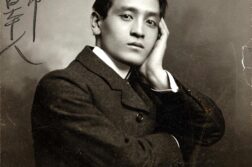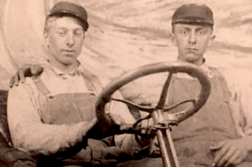ESTABLISHMENT HISTORIANS like to construct closets around certain chapters of American history, and they reserve a special closet for any “founding father” who wasn’t a Bible-quoting Protestant heterosexual. They snarl when revisionist historians point out that many of the founders were Freemasons who didn’t subscribe to their idea of traditional Christian beliefs. One can only imagine their reaction to the suggestion that some of the founders expressed same-sex affections for one another.
In one of the most startling chapters of the Revolutionary period, two young Freemasons—Alexander Hamilton and Baron Von Steuben—appear to have come close to masterminding the establishment of a constitutional American monarchy. It might have been headed by the deposed Stuart dynasty of Scotland. And, at least initially, George Washington may have supported their efforts.
Establishment history has managed to obscure what a confusing time our Revolution was from an ideological standpoint. How would the new country be run? They had options. In the old-style Catholic monarchies, absolute power was held by rulers who imposed their religious beliefs and held themselves accountable to no one. Puritan Protestants had gotten their first shot at governing during England’s 1653–59 Protectorate; their regime turned out as absolutist as the old Catholic variety. The idea of reviving a Roman-style republic ruled by a legislative body was relatively new—and so was the idea of a constitutional monarchy founded on an actual document that established due process and a balance of power between sovereign and Parliament.






